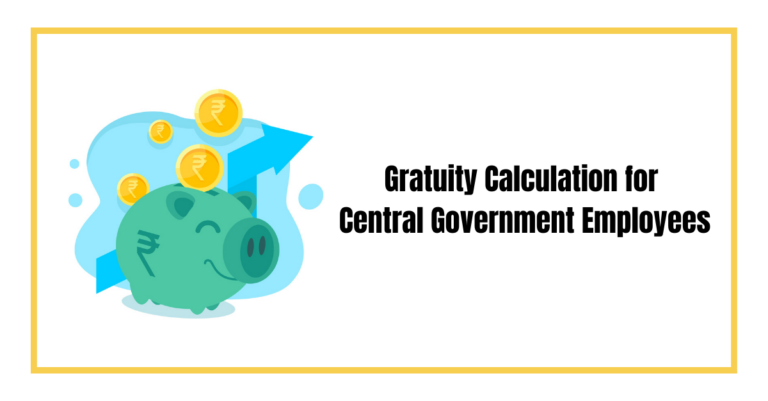This blog provides you with all the latest amendments made to the salary structure of employees that indirectly favours the gratuity payment of senior officials. Get to know about the gratuity rule in detail.
In India, the Payment of Gratuity Law was enacted in 1972, defining the pension scheme of employees who worked in a professional firm or public organisation. Gratuity for employees is procured from each employee’s monthly salary and is finally credited to their accounts after successful retirement or resignation. The only criteria are that the concerned person must serve the company for more than 5 years. Read this blog to know about New Gratuity Rules in India.
How to Define Gratuity for Employees?
Gratuity for employees is a prefixed amount that the employer needs to pay his employees after their retirement or official contract termination. The amount is calculated with the help of a fixed formula and does not depend on the market condition of the company.
The Gratuity Rules in India: Payment of Gratuity Law, 1972
The Act initially governed the gratuity payment of the employees. The law governing the payment of gratuity for employees came into force in 1972 (the 23rd year of the republic). It applies to organizations operating in any corner of the country. The law encompassed all factories, mines, plantations, oil fields, railway agencies, and ports. It also incorporated business entities more than twelve years into operation and had employees of more than ten in number working actively to run the business. These business entities shall fall under the Act forever once they become eligible for the two criteria mentioned above, even if the staff count falls under ten at some point in time.
Section 2 defines the official terms associated with the Gratuity Payment Act. The Act is stipulated by officials who are working under the Central Government. Thus the companies must be accredited by the Central Government. The clause that reads ‘continuous years of company service’ means that any letter issued by the company must not terminate the employee’s contract. Otherwise, if the employee is scheduled for a rejoin, the tenures will not be aggregated.
The employee must serve the company for more than five years to become eligible for the gratuity rule. During his job, the standing order has granted considerations for sick leaves, accident leaves, and other minute leaves that are informed before the employer. The employee must be granted a permanent job position if he is in continuous association with the employer for more than six months. This was done to ensure the job security of all the employees.
The formula to calculate the gratuity amount is presented as (last salary amount) x (the number of years the concerned person has provided his service to that company) x 15/26. Here the number of working days for a particular employee is defined by the total number of days he has been subjected to salary earning even when he was on informed leaves. It also includes the days he had to take off due to accidents or sickness. Female employees are allowed a maternity leave during which she’s given a salary even at a no-work status for a period not exceeding more than one year.
Section 4 of the Act further clarifies the provisions. The gratuity for employees is payable to only those who are fit for any of the below-mentioned criteria:
- Superannuation – This factor says that the gratuity amount is to be given based on criteria like the employee’s average salary during his tenure, the age of the worker when he decides to demand the benefit, etc. It does not depend on the business status or market condition
- Retirement – One who decides to resign from the company after serving five years or more to seek a better offer. Otherwise, it can also be calculated as the period leading to one’s official retirement age, i.e., 60 years.
- Death & Disability – If an employee unfortunately dies or becomes disabled due to an accident, he’s eligible to ask for the gratuity, provided the amount shall not exceed ₹20 lakhs.
Updated Gratuity Rules in India as of 2021
The provisions of the old Gratuity rules in India have undergone specific amendments and the new legislature as of 2021 has been shared. The Ministry of Employment and Labour in India enacted the new regulations and Gratuity Rules in India on 1 April 2021. The Central Government instructed that by no means allowances can exceed 50% of an employee’s monthly salary.
This was done to honour the senior staff by increasing the amount of their gratuity. The gratuity maturation period remains five years except for journalists who look for better job opportunities. Social security charges in the form of PFs will increase, which automatically reduces the salary expectations at the end of each month. No tax is levied on gratuity amount less than or equal to 20 lakhs.
Also, another critical update was made that states that if an employee has worked for more than six months of a year after his fifth year of employment, the employer has to consider that whole year while calculating his gratuity amounts. This means if someone has worked for 8 years and 8 months in a company starting from his hire date, then the number of years of his employment is considered as 9 in the final calculation directed to determine employee gratuity.
Conclusion – Gratuity Rules in India
The Gratuity Rules in India governing the stipulation of the Gratuity Payment Act apply to all companies that are registered under the Central Government. The employees must serve their organisation for a minimum of 5 years to become eligible for the gratuity claims. Chapter 5 of the law has been recently updated to clearly state the provisions of the final amount that will be credited to a retired professional after they decides to appeal for the money within 30 days of their resignation.
The full-time staff gets gratuity benefits from the company, while contractors are responsible for gratuity payments to the temporary workers. If the company decides to pay someone more than ₹20 lakhs, that must be separately credited as a bonus. We also refer to this as ex-gratia.
Read More,










